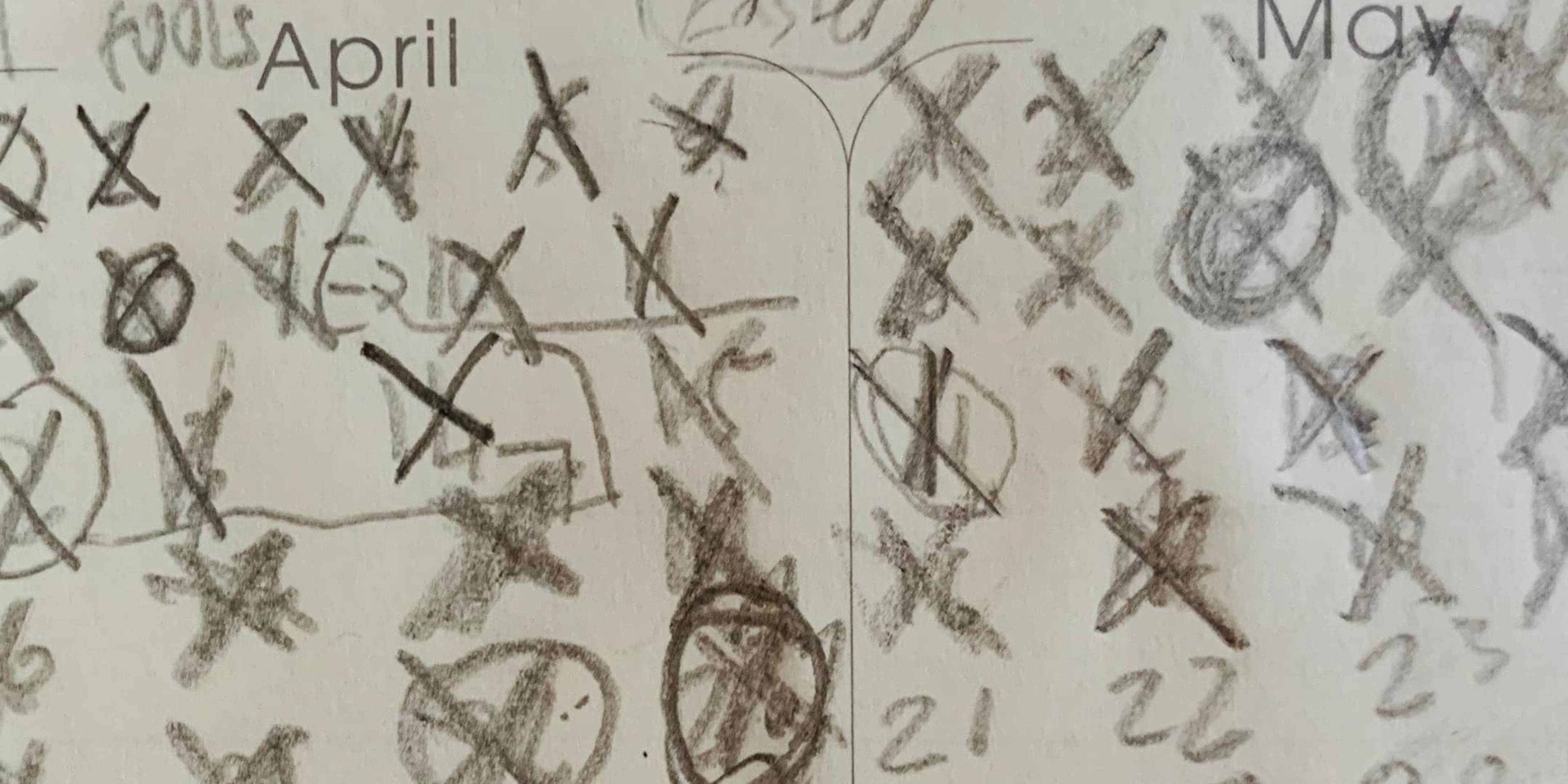April 15, 2020
Processing Emotions
By Dr Kathy Weston

Reflect
There has been little chit-chat in our home about the actual virus over the last few weeks, so I could presume that my children haven’t been reflecting too hard on its trail of death and destruction. However, this would be imprudent.
Chats are taking place; between siblings, online (with more anxious friends) and in their own heads, as children lie in bed processing snippets of adult chat or eavesdropped titbits from phone calls. Just because children don’t appear to be worried on the surface, doesn’t mean that they aren’t.
As the image above demonstrates, somewhere inside the head of my ten year old there is a calculation going on, and he is asking what we have all been asking, but are potentially afraid to articulate: how long will this last? His pencil markings in his bedtime diary are a great reminder of the importance of children having a space to process their emotions during challenging times. They may do by talking to their teddies, or the hand-puppets that you introduce at bedtime. They might draw the virus, sing about it or write poems.
Whatever method your children choose to express themselves, don’t express alarm, stay calm and take a gentle approach. When I found my son’s scribbles, I praised him for remembering to write in his journal every evening and asked him if it helps him to sleep better. We then talked about the expression, ‘time flies’ and listed all the things that we are doing as a family to make these long weeks seem shorter.
Motivate
Encouraged by the journal discovery, we decided to extend the family chat about emotions by watching the 2015 family film, Inside Out.
This facilitated further discussion about ‘feeling sad’ and how you actually know you are sad. Helping our children become emotionally literate doesn’t happen overnight, but taking a gentle approach, being unafraid of naming emotions, as and when you are feeling them, and observing emotions in others, can help.
I have heard myself comment over the past few weeks, “I can feel myself getting cross, I don’t want to do that, so I am going to go outside for a little walk”, or “I am just feeling sad that I can’t see my friends tonight”. We have a unique opportunity to sensitively model our response to an array of emotions, as and when they emerge. Following up expressions of more negative emotions with a positive assertion, such as “When I see my friends again, I am going to be so excited!” can help sprinkle conversations with that most wonderous of qualities: hope.
Support
We enjoyed dusting off the smoothie-maker last week (normally confined to the back of the cupboard). Coming up with colourful concoctions to kickstart the day has been fun.
As I watched my son throw blue and blackberries into the mix, I was reminded of a freshly published study on the value of ‘dark fruits’ and their potential for alleviating depressive symptoms in teens. Equally, a chat with the neuroscientist, Professor Paul Howard-Jones, last week, highlighted the power of breakfast for boosting learning. It is the one thing, he stated, that research consistently highlights as significantly impactful.
Now, might well be a good time to encourage our teens to reflect on their diets, and the components of a healthy one. It is less about nagging them (likely to be ineffective) and more about encouraging a degree of reflection. For those interested in learning more about optimal family nutrition, nutritional therapists can offer bespokesupport.
Are you a Tooled Up member?
If you are a registered member of the Tooled Up community, click here to explore our library of resources.